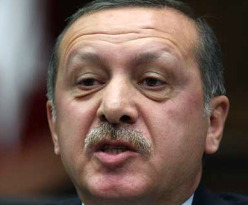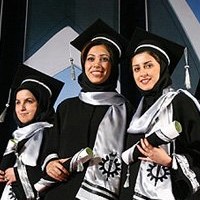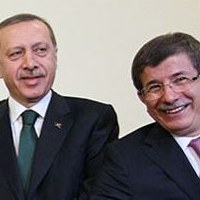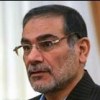![]()
Wed, Nov 17, 2010 | The Washington Institute | By Crethi Plethi
Turkey Moving Toward A Semi-Dictatorship
Soner Cagaptay, senior fellow and director of the Turkish Research Program at The Washington Institute, writes in an article that since 2002, when Turkish Prime Minister Erdogan’s Justice and Development Party (AKP) came to power, “the AKP has displayed a voracious political appetite, as if to compensate for decades without power. The party has aggressively consolidated its influence at home and mastered grassroots politics” and that “the AKP has amassed such influence over Turkish businesses and media that it will be difficult for the non-Islamist forces to build support without a government crackdown” for the coming 2011 elections.
It reminded me again of the fact that we see in Turkey the same tactics used by the ruling AKP as all totalitarian regimes have used in the past as well: create a common enemy and infiltrate the governing bodies and legal system with loyal party members.
The Turkish Prime Minister Recep Tayyip Erdogan has long been engaged in positioning AKP affiliated Islamists on key positions to transform the Turkish secular state from within and to turn Turkey into an Islamist state. This has already happened for example with the Turkish Ministry of Foreign Affairs and the Central Intelligence Agency (MIT) and Erdogan’s government is also appointing new judges who are more loyal to the AKP.
Since the Gaza War (Operation Cast Lead), Erdogan has been looking for an opportunity to minimize Turkey’s diplomatic relations with Israel and via the Mavi Marmara Flotilla, organized by the IHH (once deemed as a terrorist organization in Turkey in the mid ’90), he got his way. By constantly refering to the universal brotherhood of Muslims and Islam, he managed to discredit Israel in Turkey and is even doing so with other Western democracies. As an internal enemy, he invented the Ergenekon conspiracy. This alleged conspiracy by the military for a coup plot is used by the government as a legal instrument for arresting opponents.
And according to Soner Cagaptay, independent media outlets are receiving daily calls from Erdogan’s office to adjust their coverage to favor the AK Party.
For instance, independent media outlets receive daily calls from the prime minister’s office to adjust their coverage to favor the AKP, lest they face punitive fines. Self-censorship is so rife that outlets now “clean up” their acts without the need for AKP interference. A recent incident involved Oktay Eksi, Turkey’s Tom Friedman, who served for three decades as chief columnist of the country’s most influential daily, Hurriyet. After writing an unbecoming column about the AKP leaders, Eksi was forced to “resign” when AKP chair and Turkish prime minister Recep Tayyip Erdogan threatened to “fight back.” Hurriyet’s owner, the Dogan Group, faces a $3.3 billion tax fine for anti-government activity — a sum larger than Dogan’s net worth; another fine may finish it off. So much for independent media.
The AKP’s grip [link added by CrethiPlethi] is equally felt by secular, pro- Western businesses, which still form the bulk of the country’s Fortune 500 club. Despite their economic power, such businesses fear that if they support non-AKP forces, they will be targeted by selective tax audits, or lose lucrative contracts. In fact, business leaders who support opposition parties are often “linked” to the infamous Ergenekon case, ending up in jail for supporting this alleged coup plot.
Ergenekon provides perhaps the best illustration of the AKP’s post-2002 machinations. The AKP has abused this coup allegation to include a wide array of opponents. Such people typically end up in police custody, only to be released a few days later, free yet shaken. Or AKP opponents find that someone has wiretapped their private communications for use on pro-government media broadcasts, often with unsubstantiated coup allegations.
We see these techniques in, for example, Russia — the silencing of political opponents and the destruction of large (opposition supporting) corporations by punitive tax fines (Yukos Oil Company) — and Iran, which is a master of posing “Western imperialism and Zionism” as the common enemy of the Iranian Revolution (involving arrests of tourists and journalists and accusing them of espionage for the West).
Despite AKP’s iron grip on Turkish media and businesses the Turkish economy is on the rise. It grew an annual 10.3 percent in the second quarter which followed an 11.7 percent growth in the first quarter of 2010. Bank loans for cars, homes and other purchases have risen every week since January. All this while the world economy is struggling to overcome the recent financial crisis. And this economic recovery is much needed by Prime Minister Recep Tayyip Erdogan to win a third term in elections that must be held by July 2011.
Turkey’s Neo-Ottomanism (Yeni Osmancılık) will become a major problem for Israel and Western democracies, if the Turkish Non-Islamist parties don’t find the support to win the 2011 elections.



 RSS
RSS











#Turkey Moving Toward A Semi-Dictatorship | #Erdogan http://j.mp/bPJ830
RT @CrethiPlethi: #Turkey Moving Toward A Semi-Dictatorship | #Erdogan http://j.mp/bPJ830